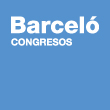Dear colleagues
After nine years, it is a great pleasure to welcome you back to Uppsala, Sweden for the 6th IgCLL educational workshop. The IgCLL group was established in 2003 with the aim of applying standardized and consistent methods for immunoglobulin (IG) sequence analysis in chronic lymphocytic leukemia (CLL). A working group on the same topic was soon formed within the European Research Initiative in CLL (ERIC), helping to provide international guidelines for reliable IG sequence analysis in CLL with prognostic and diagnostic purposes, and guidance for the appropriate interpretation of the results by a review board.
In 2007 the IgCLL group organized their first educational event for the international research community, held in Uppsala, Sweden, and to date a total of five workshops have been hosted throughout Europe. Now three years since the last workshop and due to the rate at which technology is advancing (and in line with this biological discoveries and understanding), we felt that there is a need to update the scientific community on developments in immunogenetics and ensure that appropriate and novel analytical strategies are being employed and followed correctly. Such developments extend to the analysis of IG genes using next-generation sequencing methodologies, particularly for the detection of minimal residual disease (MRD).
With this aim, the scientific committee has devised an exciting programme comprising top experts in the field. Our primary goal is to bring together clinicians and scientists interested in learning about recent developments in immunogenetics and MRD and novel analytical strategies relevant for both research and clinical diagnostics/prognostication, thereby bridging basic research with clinical practice. During this two-day event you will hear lectures from key speakers in the field, participate in computer-based practical sessions and contribute to expert panel-led debates/discussions. This interactive approach will provide you with the opportunity to not only learn but also share your own thoughts, ideas, knowledge and experiences. Ultimately, it is by sharing these ideas that will lead to new approaches and discoveries that will benefit the entire community.
Although your time in Uppsala may be limited we would encourage you to visit the city. Uppsala is a picturesque, medieval university city that lies approximately 70 kilometers northwest of Stockholm. Uppsala University, which was founded in 1477, is the oldest university in Scandinavia and lends an air of academia to the city that is reflected by the large and diverse student population and has helped to create a dynamic center of science and education. The 13th century cathedral, the original University building (constructed between 1879-1886), Museum Gustavianum and the gardens curated by the 18th century botanist Carl Linnaeus are just a few of the many places of interest within Uppsala which we would recommend you visit.
Finally, we would like to acknowledge our financial sponsors without whom it would not have been possible to offer this workshop with complimentary registration. On this note, we will conclude by saying that we hope our meeting will set a stimulating and creative environment for advancing our knowledge in the field of immunogenetics.
Hoping to see you in Uppsala in September
Lesley Ann Sutton & Anastasia Chatzidimitriou, on behalf of the entire scientific committee




